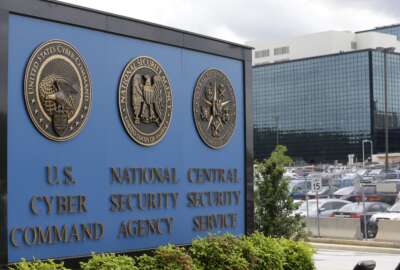Lawmakers: CMS should rely on states to fight fraud
States need to help CMS fight fraudulent claims, says Sen. Claire McCaskill.
wfedstaff | June 4, 2015 8:24 am
By Jory Heckman
Federal News Radio
States need to cooperate with federal agencies to rein in fraudulent claims filed to Medicare and Medicaid for the programs to stay afloat, said some lawmakers.
Sen. Tom Carper (D-Del.) said Medicaid loses $60 billion in improper payments every year, as part of his statements in a hearing of the Committee on Homeland Security and Governmental Affairs’ Subcommittee on Federal Financial Management, Government Information, Federal Services, and International Security,.
Carper, along with Sen. Tom Coburn (R-Okla.), has sponsored a bill for the Medicare and Medicaid Fighting Fraud and Abuse to Save Taxpayers Dollars (FAST) Act, which would curb fraudulent claims filed to these programs.
Sen. Claire McCaskill (D-Mo.) said states should work in their best interest by helping to investigate fraud within their own boarders. Likewise, she said government should remind the states where they draw their money from.
“I think the more that you begin to exercise that muscle, the more cooperation you will get from the states. They are all gasping right now, and incredibly dependent on the help that they’re getting from the federal government,” McCaskill said.
“I for one think it makes more sense that we’re giving them that help as opposed to jacking up costs for everyone the more we could cut back on the Medicaid program,” she said. “I encourage you to use that muscle, that we have money and you need it, to get the data that we need to provide integrity to the program.”
Improvements to fraud detection program
Lewis Morris, chief counsel to the inspector general at the Department of Health and Human Services, said One PI, the department’s current fraud prevention system, has improved significantly.
“What took us months two years ago to construct the actual software package and apply it to a hospital’s set of compliance issues, we can now do in about 20 minutes,” Morris said.
“We’ve started a series of audits already that are looking at up to 28 different risk areas in a hospital system by pulling samples of claims and then going back to that hospital, identifying those compliance issues, and allowing them to not only repay the money owed to our program, but take a closer look at their internal controls so when we come back in a year or two, we hope to have found corrective action, so we don’t need to keep repeating the pay and chase,” he said.
McCaskill applauded the IG’s ability to use an off-the-shelf product to cut down on wasteful spending.
“If we say we want somebody to do something, typically they say they’re going to design a system, and it takes years and a lot more money than we thought it was ultimately going to take, and then sometimes it doesn’t even work the way it’s supposed to and it gets abandoned,” she said. “I wish the rest of government would take note that we are way behind in terms of the integration of data in the systems that are available for analysis in government.”
Dr. Peter Budetti, the deputy administrator and director for program integrity at the Centers for Medicare and Medicaid Services (CMS) said that 639 new personnel will be fully trained to fight fraud by the end of the fiscal year. He said that CMS will soon start cutting payment to claims CMS has flagged as suspicious, but he would not give an exact date when pressed further.
“We’re going through it in a responsive and responsible way,” Budetti said. “We are set up for doing this and we will have the system integrated and automated into the claims processing system over the course of the next year.”
RELATED STORIES:
CMS to take on improper payments in new way
Medicare goes high-tech to head off fraud
Jory Heckman is an intern with Federal News Radio.
(Copyright 2011 by FederalNewsRadio.com. All Rights Reserved.)
Copyright © 2025 Federal News Network. All rights reserved. This website is not intended for users located within the European Economic Area.





